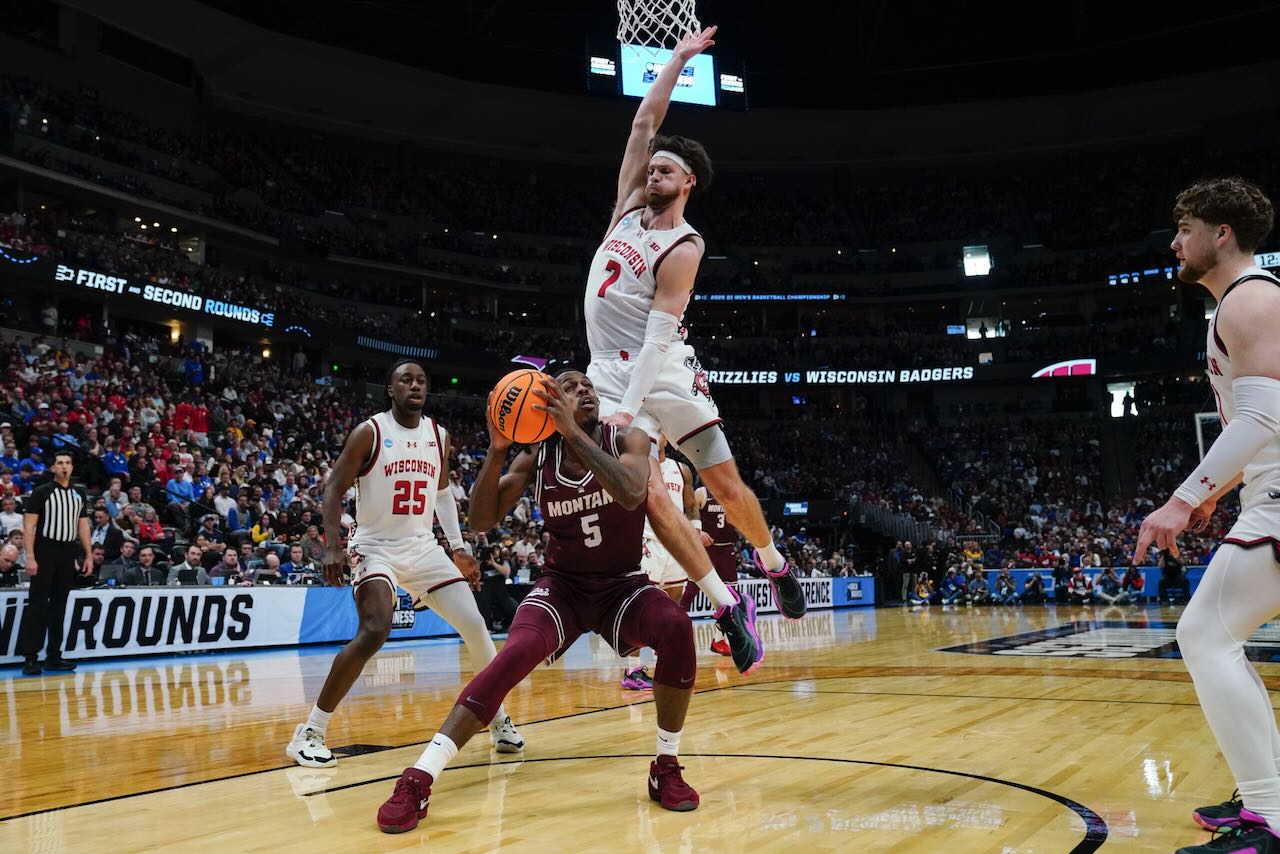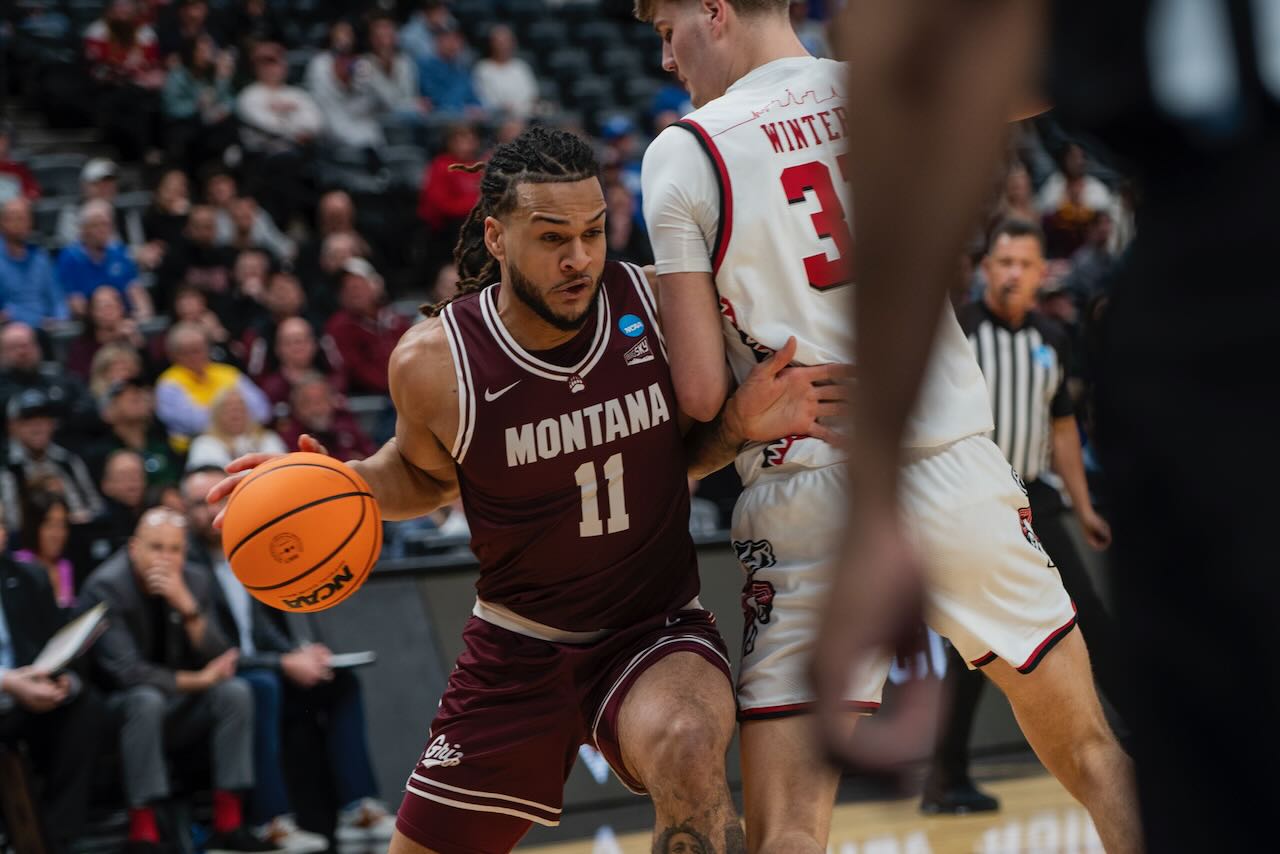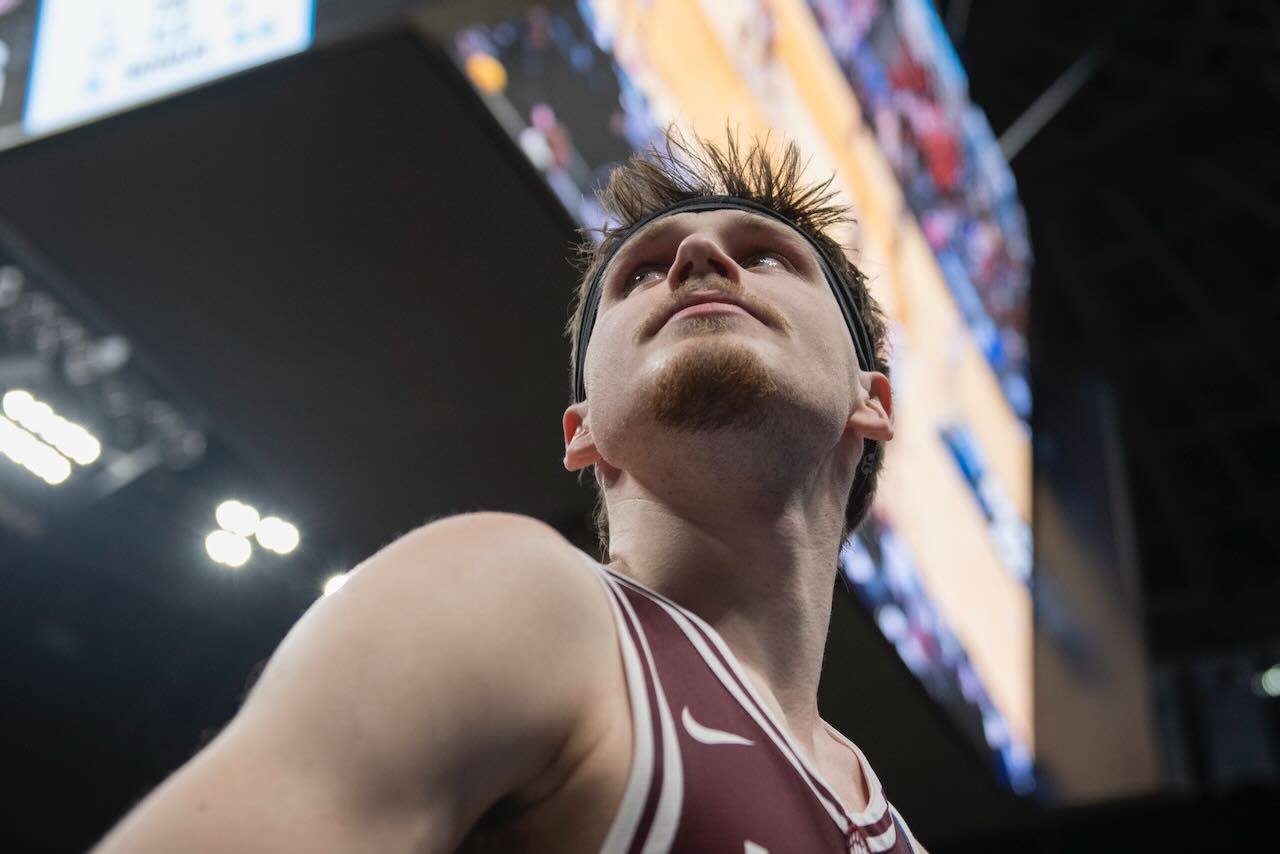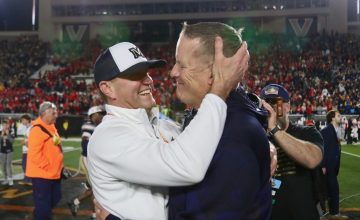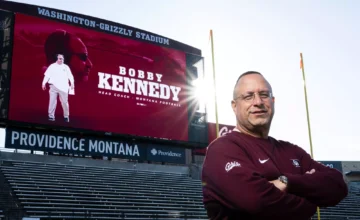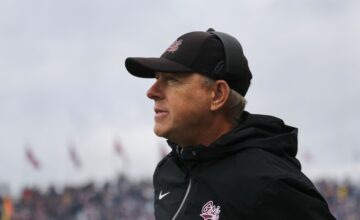DENVER, Colo. — The magic ran out for the Montana Grizzlies.
On Thursday, the Grizzlies fell 85-66 to the Wisconsin Badgers in the first round of the NCAA Men’s Basketball Tournament. The appearance in March Madness was the Grizzlies’ first since 2019.
“We couldn’t string our stops with our buckets,” senior guard Kai Johnson said after the loss. “I guess shots just didn’t fall after that run. Just it is what it is.”
Only one team ends the NCAA Tournament with smiles on their faces, and that team won’t be Grizzlies.
But even without a Cinderella run through sports’ best tournament, the Grizzlies take pride in the magical run they created in the past two months.
Back in December, the Grizzlies were a 7-6 team lacking identity. They entered Big Sky play with as many questions as answers.
The Grizzlies were not special.
Then they were.

“How this group came together and learned to play together, then playing together throughout the entire year, the season, I think that shows with our 25 wins,” senior guard Kai Johnson said on Thursday, a few minutes after the season ended.
After a 4-2 start to the conference season, the Grizzlies rattled off 10 consecutive wins. The run included a road win against Northern Colorado, whom Montana would go on to split the Big Sky regular season title with and beat in the Big Sky Championship Game. The run also included a sweep of the Montana State Bobcats, who had won the three previous Big Sky titles.
After an overtime loss to Portland State, the Grizzlies ripped off four more wins, including a run through the Big Sky Tournament for their first conference title in six years.
The final tally on the second-half run: 14 wins in 15 games.
Something clicked for Montana.
“This is the most talented team I’ve ever been a part of, probably one of the most talented teams out of this conference,” Johnson said. “Sometimes that’s hard when you got a lot of talent on a team, to come together and be able to play together. I’ve been on teams with a lot of talent. You just can’t mesh because there’s egos, people that want the ball, whatever it may be.”
The Grizzlies added nine new faces to the 2024-25 version of the squad. Of the nine players who were occasional members of the Grizzlies’ postseason rotation, six weren’t on last year’s squad.
“Like Kai said, we came together,” Te’Jon Sawyer, one of the three holdovers, said. “We had a group talk when we was struggling in the pre-season. Small group talk. Talked it out. Like he said, it could be egos. We said we’re going to buy in. This team really bought in, and that’s what I’m happy about for the season.”
The team that came out of that discussion was physical and fearless. They didn’t take no for an answer.
The grit that became Montana’s identity spawned from the off-court battles the team faced. Some dealt with injuries. Some dealt with death. Some dealt with fatherhood. Some dealt with holding father-like responsibilities.
“All 16 had some type of adversity,” Sawyer said. “It was us showing we can fight through battles. We had a lot of close games, showing we had heart. I think that’s a team to be remembered, just by our fight.”
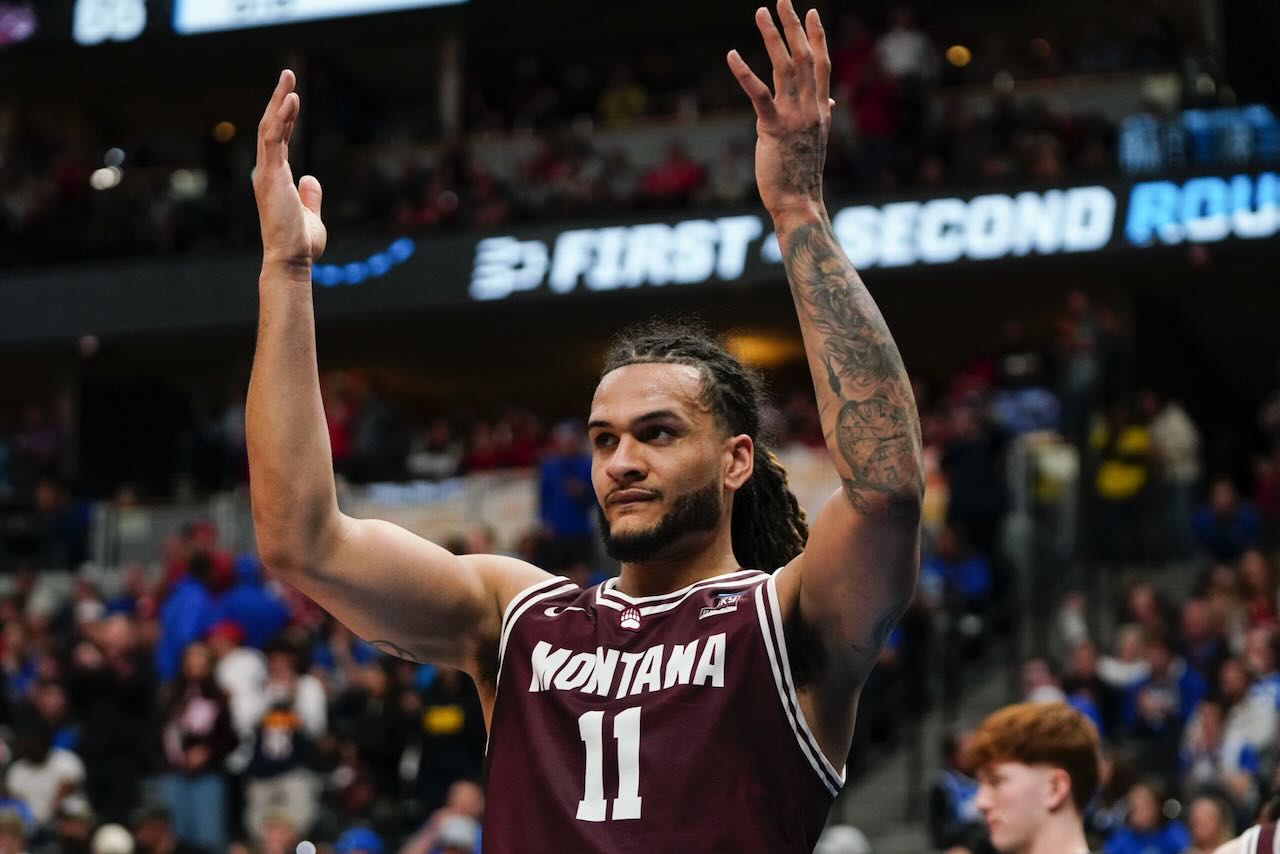
The buy-in created the winning streak.
The buy-in helped head coach Travis DeCuire become the program’s all-time winningest coach.
The buy-in helped Brandon Whitney become the program’s all-time assist leader.
Conference Coach of the Year. Conference Reserve of the Year. Multiple All-Big-Sky and All-Big Sky Tournament performers.
How did they do it?
“I think that just comes with us not caring about those types of things,” Johnson said. “When you don’t care about those things, they come to you naturally instead of looking for rewards as a team or even individually.”
When life provides big challenges, sports problems seem small. Prioritizing winning over ego becomes easier.
The starting lineup shifted throughout the season. Those who were benched accepted their roles. Those who were bumped from the rotation altogether cheered their teammates on.
In the NIL era, creating a culture of selflessness isn’t easy. Even DeCuire, who built a back-to-back champion in Missoula struggled to brew a championship culture as the college basketball landscape shifted.
Then he struck gold with his program-record-tying third Big Sky champion.
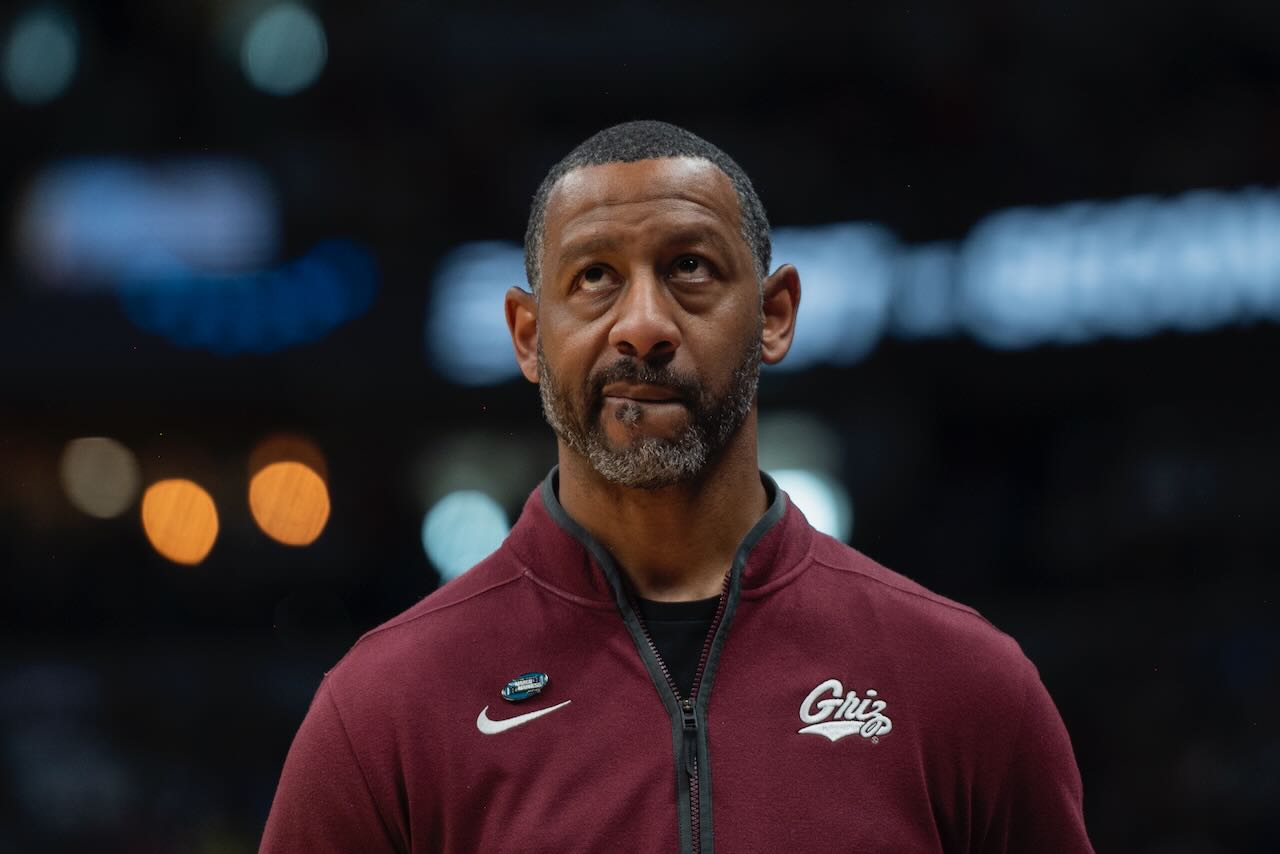
DeCuire says his strategy didn’t change.
“From day one, before COVID, I always believed that you replaced seniors with freshmen, high school kids, and replaced transfers with transfers,” he said. “You’re losing experience. Experience can’t be replaced by 17-, 18-year-olds. The same thing has continued with us in the new age of the portal.”
The end of any season creates a reset. Seniors move on. Transfers do, too.
“If the guys that have eligibility, if they walk out the door, we’ll go find some replacements,” DeCuire said.
Time will tell whether Montana’s return to the mountaintop will spark an era of championship basketball in Missoula, but this year’s version of the Grizzlies did its part by putting team over self and reaping the benefits.
The recipe has been written.
“What I want to be remembered for,” Johnson said, “is how close this team is on and off the court.”
